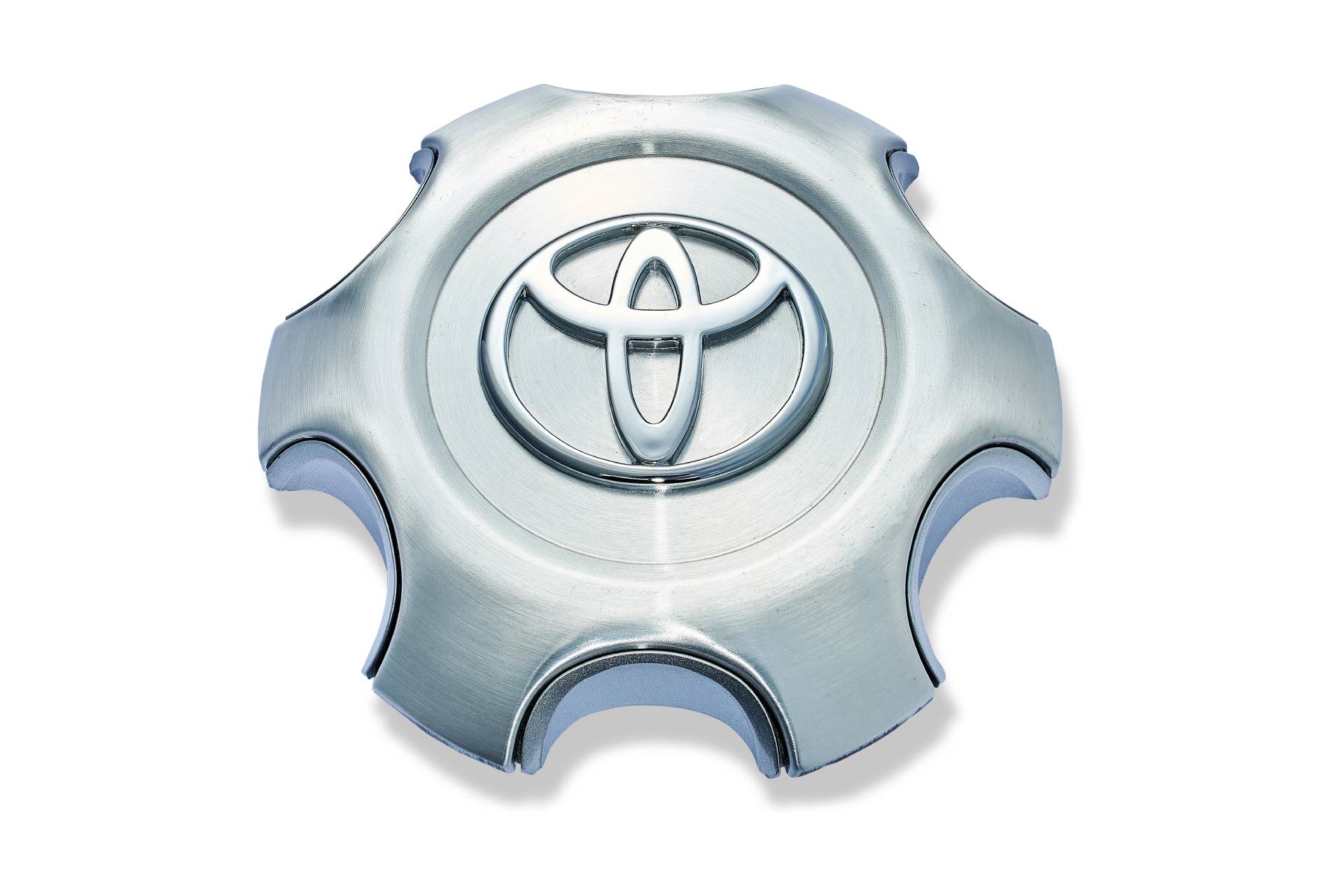The Crucial Duty of Plastic Nameplates in Branding and Recognition Solutions
Plastic nameplates are fundamental in establishing brand name identity and facilitating employee acknowledgment. Crafted from numerous durable materials, they supply adjustable alternatives that can reflect a business's ethos and professionalism. Their adaptability permits use throughout multiple sectors, functioning as important tools for reliable communication. However, the effect of these nameplates extends beyond mere capability. Understanding their function can disclose deeper understandings right into branding techniques that organizations may be neglecting.

Recognizing Plastic Nameplates: Materials and Types
Plastic nameplates work as important tools in branding, providing convenience in both products and layout. These nameplates are commonly made from various types of plastic, including acrylic, PVC, and polycarbonate, each giving distinctive buildings that suit various applications. Acrylic, known for its quality and resilience, is typically favored for high-visibility display screens. PVC provides cost-effectiveness and is light-weight, making it excellent for short-lived signage - Plastic Nameplates. Polycarbonate, being impact-resistant, is chosen for settings requiring added durability.In terms of kinds, plastic nameplates can be located in engraved, published, or embossed styles. Engraved nameplates offer an expert look, while published choices enable vibrant shades and intricate layouts. Embossed nameplates add a responsive component, enhancing their visual allure. The versatility of these materials and types warranties that organizations can discover an appropriate nameplate that straightens with their branding objectives and details demands, efficiently contributing to their general identification
Enhancing Brand Identification Through Personalization
Personalization plays a significant role in enhancing brand identity, allowing companies to create nameplates that mirror their special values and appearances. Customizing nameplates to straighten with certain brand aspects, such as colors, fonts, and logo designs, promotes a natural aesthetic identification. This individualized approach not just makes the nameplates extra remarkable but additionally establishes a solid link with customers.Incorporating distinguishing characteristics such as finishes, textures, and shapes can additionally separate a brand name in a competitive industry. For example, a sleek, contemporary nameplate can share innovation, while a classic design might stimulate practice and reliability.Additionally, customized nameplates can highlight crucial brand name messages and values, enhancing the organization's mission. By investing in personalized branding options, business can develop a long-term impression, improve acknowledgment, and ultimately, reinforce client loyalty. In a period where brand name identification is essential, personalization of nameplates arises as a calculated tool for reliable communication and brand depiction.
The Significance of Employee Recognition

Applications of Plastic Nameplates in Different Industries
Plastic nameplates serve essential features throughout numerous sectors, improving functional efficiency and brand name exposure. They are necessary for commercial devices recognition, supplying clear labeling for equipment and tools. In addition, these nameplates play a considerable function in retail branding services and ensure security and conformity markings in regulated atmospheres.
Industrial Devices Identification
In numerous industries, efficient recognition of commercial tools is crucial for functional effectiveness and safety and security. Plastic nameplates offer this objective by giving clear, durable, and weather-resistant tags that can stand up to extreme settings. These nameplates are utilized across production, construction, and logistics sectors, guaranteeing that devices, machines, and lorries are easily recognizable. By showing crucial information such as devices specifications, identification numbers, and safety and security directions, plastic nameplates add to structured procedures and minimized downtime. In addition, they enhance conformity with safety and security guidelines by making sure that essential information is readily available. The flexibility of plastic nameplates makes them a very useful asset for boosting office company and preserving high safety requirements in commercial settings.
Retail Branding Solutions
Reliable recognition is not limited to commercial settings; it extends right into retail atmospheres where branding plays a pivotal role. Plastic nameplates offer as important devices in retail branding remedies, offering both performance and visual appeal. Sellers use these nameplates to present product information, rates, and advertising messages, enhancing customer experience via clear communication. Personalized and sturdy, plastic nameplates can hold up against the roughness of high-traffic settings, guaranteeing longevity and constant brand representation. They can be created to line up with a store's general branding technique, incorporating shades, logo designs, and font styles that show the brand identification. By efficiently integrating plastic nameplates, retailers can develop an organized and visually attractive shopping experience, inevitably driving consumer involvement and commitment.
Safety And Security and Compliance Markings
While making sure workplace safety and security and governing conformity, markets significantly depend on plastic nameplates as vital parts for noting threats and offering crucial details. These nameplates serve different features, including labeling chemical storage space locations, suggesting fire escape, and displaying security treatments. Their longevity and resistance to rough atmospheres make them ideal for usage in production, construction, and medical care industries. Additionally, plastic nameplates can be tailored to meet specific regulatory needs, guaranteeing compliance with industry standards. The ability to quickly review and identify these markings boosts security understanding amongst site visitors and staff members alike. As a result, plastic nameplates are essential tools for advertising safety and security and conformity, eventually adding to a more secure working setting across varied industries.
Sturdiness and Long Life: Why Product Matters
The option of product for plastic nameplates significantly influences their resilience and durability. Different types of plastics supply various advantages, consisting of resistance to environmental variables like wetness and UV direct exposure, which can weaken lower products. Recognizing the life expectancy and maintenance requirements of these nameplates is essential for ensuring effective branding gradually.
Product Kinds and Benefits
Material selection plays a necessary role in the performance of plastic nameplates, substantially influencing their longevity and longevity. Typical materials used for plastic nameplates include acrylic, polycarbonate, and PVC. Polymer is preferred for its clearness and resistance to scraping, making it suitable for comprehensive designs. Polycarbonate offers exceptional impact resistance, perfect for high-traffic atmospheres. PVC is a cost-effective option, understood for its light-weight and convenience, appropriate for numerous applications. Each product presents special advantages; as an example, acrylic's visual appeal improves branding presence, while polycarbonate's strength guarantees longer life-span. Selecting the proper product is important for organizations aiming to keep a specialist appearance while assuring lasting capability, as the best selection boosts both brand identification and operational efficiency.
Resistance to Environmental Variables
Plastic nameplates provide visual and practical benefits, their resistance to environmental aspects is essential for making certain resilience and durability. Different sorts of plastics, such as polycarbonate and acrylic, are engineered to stand up to UV radiation, moisture, temperature variations, and chemicals. This durability stops fading, bending, or fracturing, which can compromise their appearance and readability over time. In addition, premium plastic nameplates stand up to influences and scratches, preserving their integrity in difficult settings. The ability to withstand exterior conditions makes them suitable for signs and recognition purposes across varied markets. Eventually, picking the best material for plastic nameplates enhances their effectiveness in branding while ensuring they remain intact and visually appealing for prolonged durations, enhancing the value of material selection in their layout.
Life Expectancy and Maintenance Needs
Durability and longevity are essential factors in the performance of plastic nameplates, influencing both their life-span and maintenance requirements. High-grade materials, such as polycarbonate and acrylic, give resistance to use, UV rays, and chemicals, making sure that nameplates maintain their appearance in time. The selection of product directly affects how commonly upkeep is needed; long lasting plastics often need marginal upkeep compared to lower-quality choices. Regular cleansing with moderate detergents can prolong the lifespan of these nameplates by avoiding buildup that may result in fading or staining. Furthermore, proper installation techniques can alleviate damages from environmental aspects, further improving long life. Eventually, choosing the best product is important for attaining optimal performance and longevity in branding and identification options.
Creating Effective Nameplates: Key Considerations
When crafting efficient nameplates, numerous essential factors to consider should be taken right into account to assure they accomplish their branding purpose. Initially, material option is important; top notch plastics can improve sturdiness and aesthetic allure. The design should mirror the brand's identity, utilizing consistent shades, font styles, and logo designs to cultivate acknowledgment. Quality is critical; the text needs to be readable from a distance, staying clear of extremely complex fonts that could impede readability.Additionally, shapes and size must align with the meant use and positioning, guaranteeing the nameplate is appropriately visible. Incorporating responsive elements or surfaces can also improve the individual useful site experience, inviting communication. Taking into consideration the environmental effect of the products made use of can resonate with eco-conscious customers, enhancing positive brand name values. By resolving these variables, services can produce nameplates that not only recognize yet also effectively connect their brand message.
The Future of Plastic Nameplates in Branding Solutions
As brand names remain to advance in an increasingly open market, the duty of plastic nameplates in branding remedies is readied to expand substantially. Developments in modern technologies and products are driving renovations in personalization, sturdiness, and eco-friendliness, enabling brands to share their identity better. The integration of sophisticated printing techniques, such as electronic and UV printing, enhances the aesthetic appeal of nameplates, making them more aesthetically striking.Moreover, the growing demand for tailored experiences will certainly result in an increase in bespoke plastic nameplates that satisfy specific customer preferences. As sustainability ends up being a top priority, suppliers are most likely to check out eco-friendly and recycled materials, aligning branding techniques with ecological duty.
Frequently Asked Concerns
Can Plastic Nameplates Be Reused for Different Branding Purposes?
Plastic nameplates can without a doubt be reused for different branding purposes, provided they are made with flexibility in mind. Their durable nature permits modifications, making them a useful option for evolving branding needs over time.

Exactly how Do I Clean and Maintain Plastic Nameplates?
To clean and maintain plastic nameplates, one ought to use a mild soap service and a soft cloth, staying clear of rough products. Routine cleansing prevents accumulation and preserves quality, guaranteeing the nameplates remain useful and aesthetically appealing.
What Are the Environmental Effects of Plastic Nameplates?
The environmental impacts of plastic nameplates include possible air pollution from production and disposal, payments to garbage dump waste, and concerns over microplastics (Plastic Nameplates). However, innovations in recycling and naturally degradable alternatives aim to minimize these unfavorable results
Exist Rules Governing Plastic Nameplate Products?
Regulations controling plastic nameplate materials vary by region and usually concentrate on safety and security, reusing, and ecological effect. Conformity with these regulations is important for suppliers to assure item security and decrease environmental consequences.
Just How Can I Determine the Efficiency of Nameplates in Branding?
Measuring the effectiveness of nameplates in branding can involve evaluating visibility, client recall, and brand name acknowledgment with surveys, sales data analysis, and marketing research to establish their influence on customer actions and brand assumption. A sleek, contemporary nameplate can convey innovation, while a classic style could stimulate tradition and reliability.Additionally, Clicking Here customized nameplates can highlight key brand name messages and worths, strengthening the organization's mission. Having correct recognition, such as plastic nameplates, not only enhances personal accountability but likewise advertises transparency within the organization.These nameplates provide clarity in communication, enabling clients and workers alike to recognize functions and duties promptly. Plastic nameplates offer basic features across different sectors, enhancing operational effectiveness and brand visibility. As brands proceed to develop in a progressively competitive market, the function of plastic nameplates in branding solutions is set to broaden substantially. The combination of sophisticated printing techniques, such as digital and UV printing, improves the visual charm of nameplates, making them much more aesthetically striking.Moreover, the growing need website here for individualized experiences will certainly lead to an increase in bespoke plastic nameplates that provide to specific customer choices.